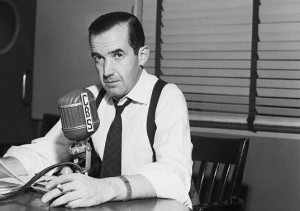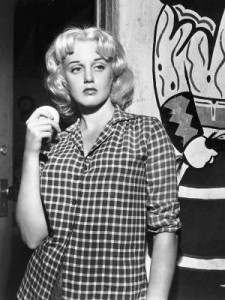I found an article from Mandaroty.com that talks about 10 things that this movie predicted right. The link to the article is:http://www.mandatory.com/2013/08/09/10-things-idiocracy-predicted-would-happen-and-sadly-already/
And the 10 things this article compares from Idiocracy to the our real lives now are:
1. Legitimate Businesses Peddling Smut: this is that companies were offering “adult services” with their normal products. And in the article they compare this with people being able to use Google glasses to watch porn.
2. Ads Everywhere: this is self-explanatory. In the movie there were ads everywhere, on their clothes and even on the US flag, and in real life, there are ads everywhere you look. (There are ads around you right now).
 3. Profanity in Advertising: I think that this is the funniest one. Examples of this from the movie are the billboard, and Carl’s Jr’s slogan: “F** You!, I’m eating!” In the article, they talk about Frank’s Red Hot commercials where they say, “I put that **** on everything!”
3. Profanity in Advertising: I think that this is the funniest one. Examples of this from the movie are the billboard, and Carl’s Jr’s slogan: “F** You!, I’m eating!” In the article, they talk about Frank’s Red Hot commercials where they say, “I put that **** on everything!”
4. Extra Big Ass Fries: In the movie, Carl’s Jr vending machines sell big ass fries, And in real life there are real products that are extra big and some that even have the word “ass” in them.
5. Garbage Avalanches: The set-up of the movie is that they were released from their pods because of a garbage avalanche, and as it turns out, there are real landfill landslides in Guatemala during rainy seasons.
6. The Human Language: In Idiocracy people couldn’t understand what he was saying because he was using real full sentences instead of sounds, and in the article they compare this to the language used in texting and twitter.
7. Remote Shutdown: In the movie, the police was able to turn off their car remotely, and in real life authorities and loan companies are able to shut down a car.
8. Advanced GPS: In the article they say that although GPS did exist when the movie came out, they had not get been able to actually give a person directors out loud yet.
9. Ow My Balls: The article compares the TV show in the movie to any clip ever on any show there they use a guy getting hit in the crotch as a comic relief.
10. Ass (the movie): People in the world of Idiocracy would go to the movies to watch 90 minutes of a man’s rear end. And there is a music video from a Chilean band that features a man’s behind as well.
What do you guys think of this article’s comparisons with the movie? I think that some of them are a little far fetched, but they still don’t make the human race look not so good.




 Other than the fact that they are both news anchors, they have a lot in common. They both are political figures, even though they are news anchors professionally; they have even created their own political movements.
Other than the fact that they are both news anchors, they have a lot in common. They both are political figures, even though they are news anchors professionally; they have even created their own political movements.